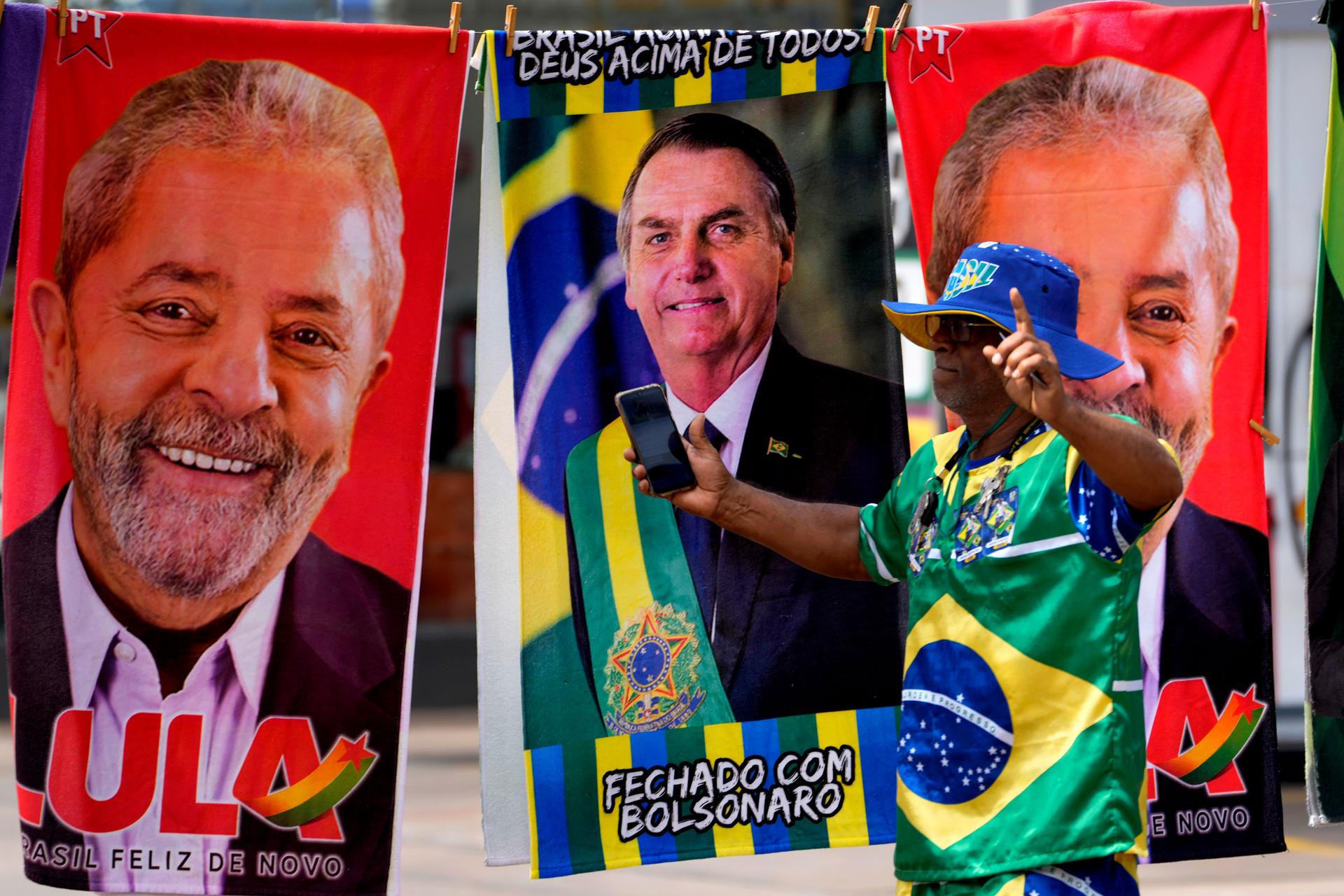Lula battles Bolsonaro for chance to defend the poor again in Brazil
This Sunday’s upcoming elections in Brazil are being closely watched.
It’s the battle of two presidents. Former President Luiz Inacio Lula da Silva is hoping to unseat current far-right President Jair Bolsonaro, who has been a close ally of Donald Trump. (In Brazil, presidents are allowed two terms and they can run again, after at least one term has elapsed.)
Lula is poised to take this first round vote on Sunday. He leads the latest polls by 14 to 17 points. If he can win half of the valid votes, he can take the election in the first round.
Despite spending time in prison for a corruption conviction, Lula continues to have much support. Many Brazilians believe he can bring back better days.
“At the moment, I will vote for Lula, because he’s kind of our light at the end of the tunnel. He’s our hope,” said one computer programmer in northeastern Brazil.
Lula has been campaigning up and down the country in recent weeks. Videos shared across social media show big rallies, events and marches.
Last weekend, a crowd broke out into spontaneous applause at a food court in an upscale shopping mall in the southern Brazilian city of Florianopolis, chanting “Lula.”
Bolsonaro has gutted workers rights, social policies and state institutions. Many blame him for his dismal approach to COVID-19, which has led to nearly 685,000 deaths. Brazil is now facing rising unemployment, inflation, poverty and hunger.
According to a recent study, 33 million Brazilians don’t have enough to eat each day.
That number has doubled in just the last two years. Lula has promised to fix it if he’s elected again.
“We have to guarantee that every person in this country can wake up and have breakfast, lunch and dinner, each day,” he told supporters at a rally in Amazonas state.
Lula is familiar with hunger pains.
He was born poor in northeastern Brazil, in a home with dirt floors.
As a union leader in São Paulo, in the late 1970s, he led huge strikes that would signal the beginning of the end of the country’s 21-year dictatorship.
He went on to establish the Workers Party and won the presidency in 2002, governing the country for two terms and lifting tens of millions from poverty.
When he left office his approval rating was nearly 90%.
“My four children studied at the university, because of him,” said Dona Rosa, a former street vender turned businesswoman, who spoke at a Lula rally this week.
That sentiment is held across the country.
Vinicius Castello is a city councilman in the northeastern city of Olinda.
“Lula was the president that made it so that poor people had a right to exist,” Castello told Kawsachun News recently. “And that’s the country we have to build now,” he said.
People have felt this excitement for Lula before.
Four years ago, he was also leading the polls in the lead-up to the presidential elections.
But he was jailed and blocked from running after he was convicted of allegedly accepting a beach-side apartment from a company seeking government contracts.
His imprisonment was part of a widespread anti-corruption operation, which, over seven years, issued 1,400 search and seizure warrants and convicted almost 280 people.
Many of them were top politicians, including members of Lula’s Workers Party.
Lula’s conviction opened the doors for Bolsonaro’s rise to the presidency.
But the former president’s supporters rallied in his defense. They set up a vigil outside the jail and said his conviction was politically motivated.
And that’s what the Supreme Court eventually found, too.
Lula was freed after 580 days.
Over the next two years, this and more than two dozen other corruption cases against him would all be tossed out for a variety of reasons.
“It was clear that the law here was being used as a political weapon,” said
Fabio de Sa e Silva, a professor of Brazilian studies at the University of Oklahoma.
“I mean, you can’t file 20-something lawsuits against somebody and have all those lawsuits being deemed, you know, lacking. Grounds to proceed with by several judges in the country. There’s clearly something wrong here with the way you’re using your prosecutory power and your power as a judge.”
Last year, Supreme Court Justice Gilmar Mendes called the country’s anti-corruption operation the biggest scandal that has befallen the Brazilian judiciary in the country’s history.
But it’s left its mark — on Brazil, and on Lula.
“Though the convictions against Lula have been annulled by the Supreme Court and proven to be politically motivated, it has tarnished the image of the Workers Party and that has an impact into Lula’s popularity,” said Rafael Ioris, a professor of Latin American history at the University of Denver.
Roughly 40% of the population says they would not vote for Lula under any circumstance.
But Bolsonaro’s rejection rate is even higher — more than half of Brazilians say they would never support Bolsonaro. And that’s going to make it difficult for the current president to make up ground against Lula in the coming days.
Brazilians will find out on Sunday.
